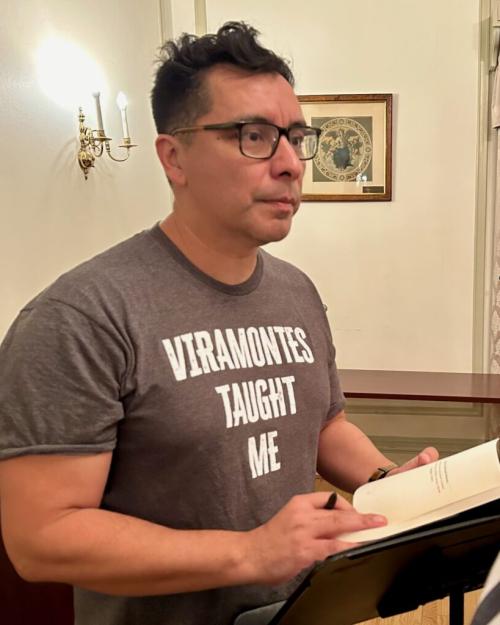Manuel Muñoz, MFA ’98, is an acclaimed fiction writer and a professor of creative writing at the University of Arizona—and he recently won one of the nation’s most coveted honors, an $800,000 “genius grant” from the John T. and Catherine D. MacArthur Foundation.
But in his prose, Muñoz draws on roots a world away from academia: he grew up in a Mexican-American family of farm workers in California’s Central Valley, laboring in the fields while also going to school.
“I am very careful when I tell my story, especially when I speak with students, to affirm that it isn’t about ‘bootstraps,’ but access,” notes Muñoz, who attended Harvard on scholarship as a first-generation student before matriculating into Cornell’s highly selective MFA program in creative writing.
“Many, many young people have creative drives, ambitions, and dreams, but we don’t all get access. Nothing is improbable if we are actually given equitable opportunities.”
Read the full story in Cornellians.




